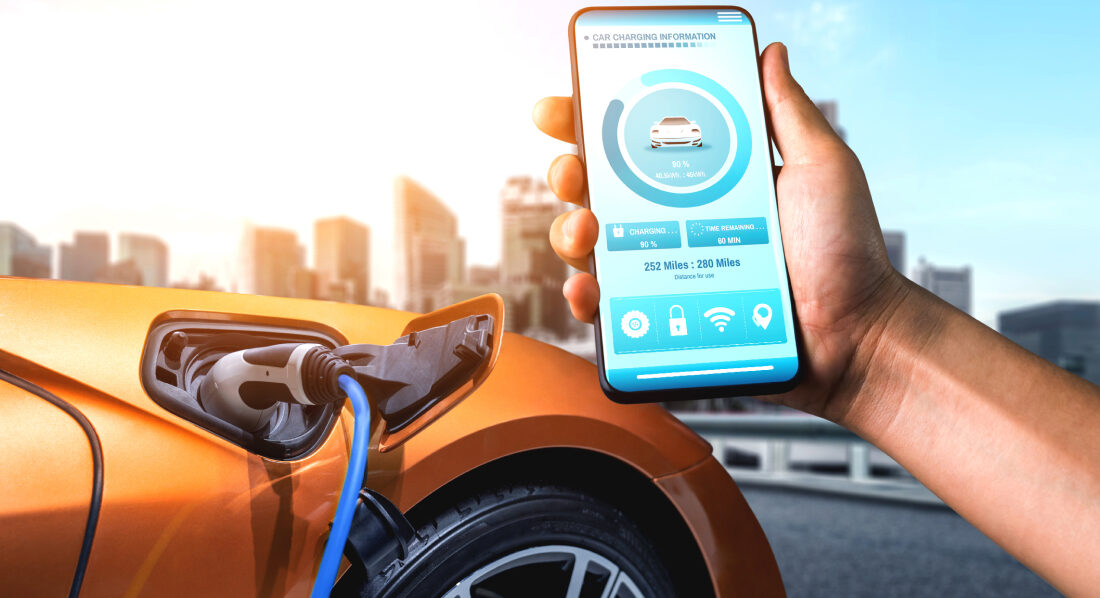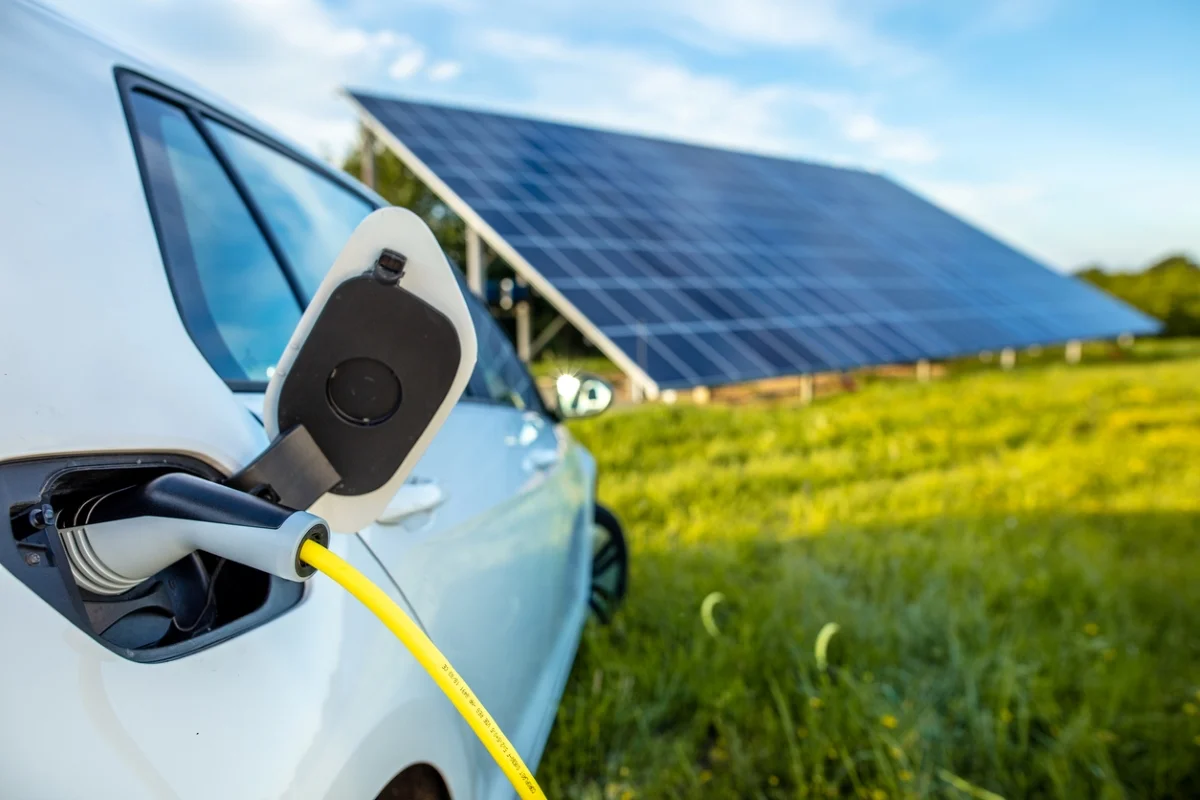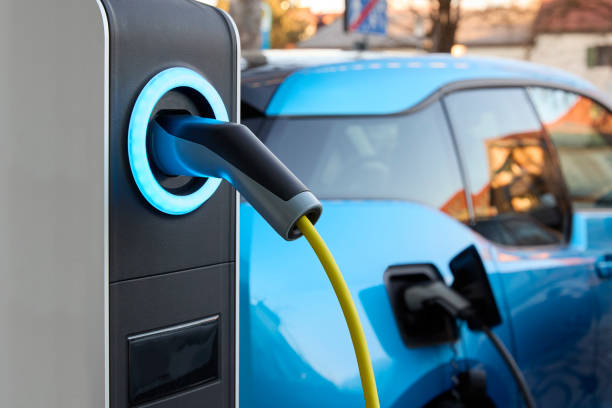- Electric vehicles are much better for the climate than traditional cars
- They release zero tailpipe emissions
- But they still generate emissions at different stages of their life
When you’re forking out thousands of pounds on an electric cars, and possibly paying the price for an electric home charger, you want to make sure you’re getting what’s promised – a greener lifestyle.
Yet, are electric vehicles (EVs) as environmentally friendly as commonly perceived? How significantly do they outshine traditional fossil fuel-powered cars in terms of environmental impact? This informative article addresses the myriad questions that may be crossing your mind.
For locating the ideal EV charging point tailored to your needs, explore our convenient quote form. By sharing a few details about your residence, we’ll connect you with our proficient installers, who will furnish you with their most competitive prices.

What's on this page?
Are electric cars better for the environment?
Let’s clarify: electric cars unquestionably have a lower environmental impact compared to their petrol and diesel counterparts. Transitioning away from fossil fuels is a positive step for the environment.
However, it’s important to acknowledge that electric cars are not entirely without environmental consequences. While they currently stand as one of the most environmentally friendly options, they still produce emissions at various stages of their lifecycle. Achieving complete environmental sustainability in electric vehicles is a goal that is yet to be fully realized.
So, in what ways can electric cars pose challenges for the environment?
Environmental impact of electric vehicles
The positive side of electric cars is evident – with no tailpipe, EV owners contribute zero CO2 emissions while driving, promising improved air quality as the number of electric vehicles on the roads increases. Additionally, the reduced noise output from electric cars aids in mitigating noise pollution, especially in urban areas.
However, when we shift our focus off the road and onto the production phase, the environmental narrative takes a different turn.
**Production Impact:**
The primary environmental impact of electric cars begins in the manufacturing process. CO2 emissions from electric car production are 59% higher compared to traditional internal combustion engine vehicles. This discrepancy is predominantly attributed to the battery manufacturing process. The geographical location of production also plays a role, with most car batteries manufactured in countries like China, South Korea, and Japan, where carbon-intensive electricity production is prevalent. A report from the European Environment Agency (EEA) reveals that in China, a substantial 35-50% of total EV manufacturing emissions stem from electricity consumption for battery production, a figure up to three times higher than in the United States. Shifting to wind power alone in electricity generation could lead to a 50% reduction in emissions during the production phase in China.
**Battery Materials:**
Electric cars rely on lithium batteries composed of base metals like copper, aluminium, and iron, all of which demand energy-intensive extraction processes. The carbon-heavy nature of this extraction process prompts some to question the true green credentials of electric cars. Cobalt, a crucial metal in EV batteries, is particularly controversial due to its negative humanitarian impact.
In Germany, the Institute for Economic Research has raised concerns, suggesting that electric vehicles might not significantly reduce CO2 emissions in the country in the coming years. According to the Institute, the CO2 emissions of battery-electric vehicles could, in the best case, be slightly higher than those of a diesel engine. However, contrasting studies in Germany have reached opposite conclusions, emphasizing the ongoing debate over the environmental impact of electric cars.
One study found that emissions are up to 43% lower in EVs than diesel vehicles.
**Type of energy the car consumes:**
Governments worldwide are actively advocating for cleaner energy to align with the climate targets established by the Paris Agreement. This development is particularly encouraging for electric vehicle (EV) owners, as it opens the door for electric cars to potentially achieve a 100% green status once they depart the manufacturing phase.
However, in the current scenario, many electric vehicles still contribute to emissions as they draw power from the UK grid. Nevertheless, the increasing integration of renewable energy sources into the UK grid mix raises the prospect of electric cars operating solely on 100% renewable energy in the foreseeable future. Moreover, the utilization of vehicle-to-grid chargers may enable these cars to even contribute surplus energy back to the grid.
In the UK, there has been an 8% reduction in emissions from electricity generation over the past three years alone. Projections indicate an anticipated further decline of over 70% by the mid-to-late 2020s, underscoring the nation’s commitment to a substantial reduction in carbon emissions through a transition to cleaner energy sources.
Electric car carbon footprint
Determining the precise carbon footprint of an electric car is challenging, contingent on factors such as the car model and the country of production.
The provided chart offers a lifecycle emissions estimate for both a standard European conventional car (with an internal combustion engine) and a Nissan Leaf electric vehicle across various countries, along with the EU average. The estimation encompasses tailpipe emissions, fuel cycle emissions encompassing oil production, transport, refining, and electricity generation. Additionally, it accounts for emissions from manufacturing the non-battery components of the vehicle, coupled with a cautious estimate of emissions stemming from battery production.
How long do you need to own an electric car before it’s fully green?
According to Reuters, the point at which an electric vehicle (EV) achieves full environmental sustainability is typically around 13,500 miles (21,725 km) for most EV owners. However, this timeframe varies depending on several factors, including the EV’s battery size, the fuel efficiency of a gasoline car, and the source of power used to charge the EV.
The provided example is based on a Tesla Model 3 driving in the United States, where 23% of electricity is generated from coal-fired plants, among other influencing variables. Conversely, if the same Tesla were driven in Norway, where almost all electricity is derived from renewable hydropower, the car could attain full environmental sustainability after just 8,400 miles.
Moreover, for EV owners with a set of solar panels at home, the duration required for their vehicle to become fully green can be further reduced. Solar panels enable them to charge their EV using sustainable energy generated on-site.
Want to learn more? Check out our A Guide To Solar Panel EV Charging Points.
So, are electric cars the future?
Electric cars are growing in popularity, and seem to be going from strength to strength – the National Grid predicts there will be 36 million electric vehicles on UK roads by 2040. Everything points to battery-electric cars being the future of mass transportation.
While electric cars dominate popularity in many nations, Japan appears to harbor a potential stronger future for hydrogen—provided there is substantial government investment.
Presently, the primary environmental concern revolves around the production of electric vehicles. Nonetheless, it’s crucial to note that, regardless of the electricity source, EVs significantly contribute to lower emissions over their lifespan compared to vehicles powered by fossil fuels.
As the world pushes for more renewable energy, electric cars will in turn become even more environmentally friendly. In fact, reducing worldwide carbon intensity by 30% would see a 17% reduction in greenhouse gas emissions from battery production by 2030.
What’s the verdict?
Undoubtedly, there are aspects in the manufacturing of electric cars that require improvement. However, considering that transportation contributes to over 24% of global CO2 emissions, the adoption of electric vehicles (EVs) undeniably represents a positive stride in the right direction.
For the present moment, consumers find themselves at a crossroads, having to decide between a fossil fuel-powered vehicle continuously emitting emissions and an electric car that, when powered by renewable energy, ceases to emit CO2 post-factory production. The preferred choice seems evident.
The lingering question remains: do we possess sufficient time to rectify the environmental damage caused by fossil fuel vehicles?
Get FREE EV Charger Quotes
Find out how much an EV Charger would cost you
Complete A Short Form – Receive Free Quotes – Compare & Save
Get FREE EV Charger Quotes
Find out how much an EV Charger would cost you
Complete A Short Form – Receive Free Quotes – Compare & Save
















